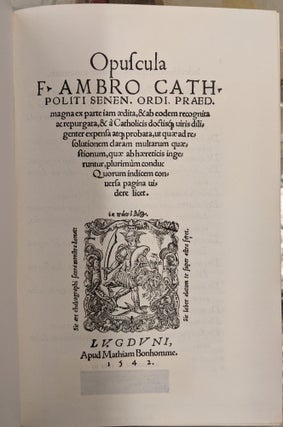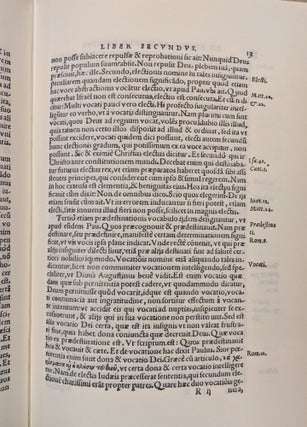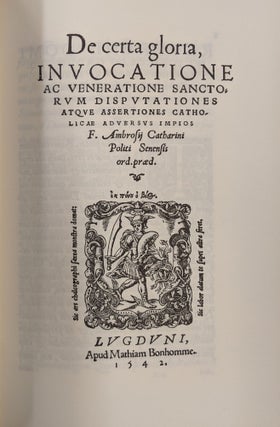Opuscula, magna ex parte iam aedita, & ab eodem recognita ac repurgata, & a Catholicis doctisq uiris diligenter expensa atq probata, ut quae ad resolutionem claram multarum quaestionum, quae ab hereticis ingeruntur, plurimum conduc Quorum indicem conuerla pagina uidere licet
Gregg, 1964. Hardcover. Very good / No jacket. Item #90708
Reprint of 1542 edition. Some shelfwear.
Lancelot Politi became a Dominican in 1517, taking the name of two saints of the Order. He was soon employed in controverting Lutheran teaching. In Siena, he incurred the hostility of his superiors by his attempt to secure their consent to the celebration of the feast of the Immaculate Conception. He was subsequently freed by Clement VII from the control of provincial superiors and placed directly under the Master General. In his Opuscula (Lyons, 1542) he included treatises on the Immaculate Conception and on predestination. He distinguished between the ‘predestination’ of certain special saints who are guaranteed by a special grace against the possibility of damnation, and the ‘foreknowledge’ by which God knows that some people will be saved, but who remain capable of salvation or damnation throughout their lives, depending upon whether or not they accept the grace that is freely offered by God to everyone. He rejected with horror the idea that anyone is predestined to damnation. He played a prominent part in the Council of Trent. -- from Oxford Reference.
Price: $50.00




